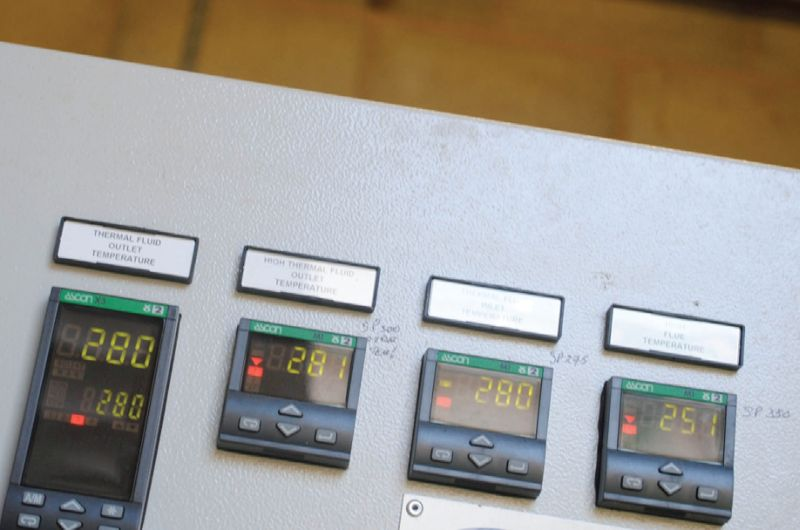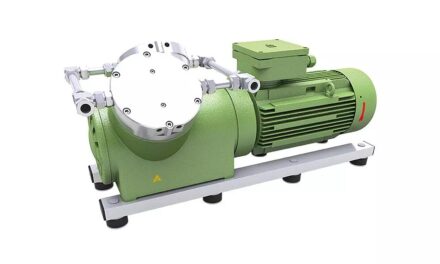 ERIKS outlines the issues that need to be considered when specifying gaskets in order to prevent premature failure and the associated leakage, product loss and downtime that can occur as a result
ERIKS outlines the issues that need to be considered when specifying gaskets in order to prevent premature failure and the associated leakage, product loss and downtime that can occur as a result
Gaskets are often the forgotten heroes in manufacturing and process operations, providing a vital interface and seal between mating surfaces. It is only when they start to fail that their importance is recognised.
The difficulty can be that gaskets often fail over a period of time, with deterioration and the slow build-up of leaks being difficult to detect. In many instances, failure arises because gasket material, shape or thickness has been incorrectly specified – often because basic criteria such as chemical, temperature or mechanical compatibility have been overlooked. It is estimated that across Europe, more than 300,000 tonnes of product loss through leakage could be prevented simply by better gasket selection. To avoid unnecessary gasket failure and maintenance, production engineers need to consider a set of principal criteria when specifying gaskets.
 Chemical compatibility
Chemical compatibility
Gasket materials must be compatible with any process chemicals employed in a given application. For example, manufacturing processes in the food and pharmaceutical industries can contain hazardous materials and if the gasket materials are not compatible with the application, a serious failure can follow, with resulting wastage and downtime. However, appropriate materials for a range of applications are available; good chemical compatibility with a variety of process chemicals is offered by, for example, the synthetic rubber material EPDM (ethylene propylene diene monomer).
In addition to process chemicals, there is also thermal stability to consider. The higher the process temperature, the smaller the range of specifications available and, likewise, low temperatures demand careful specification if the gasket is to withstand the cold without cracking. Extremes of temperature can damage poorly specified gaskets; for example, a gasket can become brittle at low temperature and, without the ability to offer a flexible seal, may allow the ingress of unwanted materials.
In chemical processing, gaskets must often function under extreme conditions where aggressive media and/or high temperatures may be present. Relatively fragile flanges require gaskets that seal with low surface pressure and this need can be addressed by PTFE gasket materials that are chemical resistant, while graphite suits high temperature applications.
Cutting systems
It may be necessary also to specify chemical inertness in synthetic gasket materials to prevent chemicals from leaching into process fluids. Also, any tools used for cutting custom-sized gaskets must be free from contaminants that could transfer to the gasket. This can be achieved using modern cutting systems, the best of which operate on a CAD/CAM interface and require no fixed tooling. These systems can deliver fast results to a range of specifications and with good dimensional replication.
Emission demands such as those imposed by the TA-Luft regulations are also relevant, as the application may require that the gasket complies with tighter restrictions on emissions. This means TA-Luft approved gasket materials must be used.
Careful consideration of issues such as those listed above can prevent problems before they occur, and there is assistance available from suppliers such as ERIKS.
Avoiding over-specification
In some cases, consulting with an expert supplier may result in a planned reduction of gasket quality if current components have been over-specified, because while over-specification is not as costly as the potential results of under-specification, it remains an unnecessary expense. A different gasket design or material that is possibly not so complex and thus less costly to manufacture, may nevertheless be more than adequate for the application, resulting in savings on supply costs.
ERIKS can create a complete sealing solutions package tailored to suit each application, keeping your assets running longer and more efficiently to improve productivity and reduce maintenance downtime. ERIKS’ product groups cover non-metallic, semi-metallic and metallic gaskets, with valve stem and stuffing box seals available in a range of materials.
ERIKS
T: 0121 508 6219


